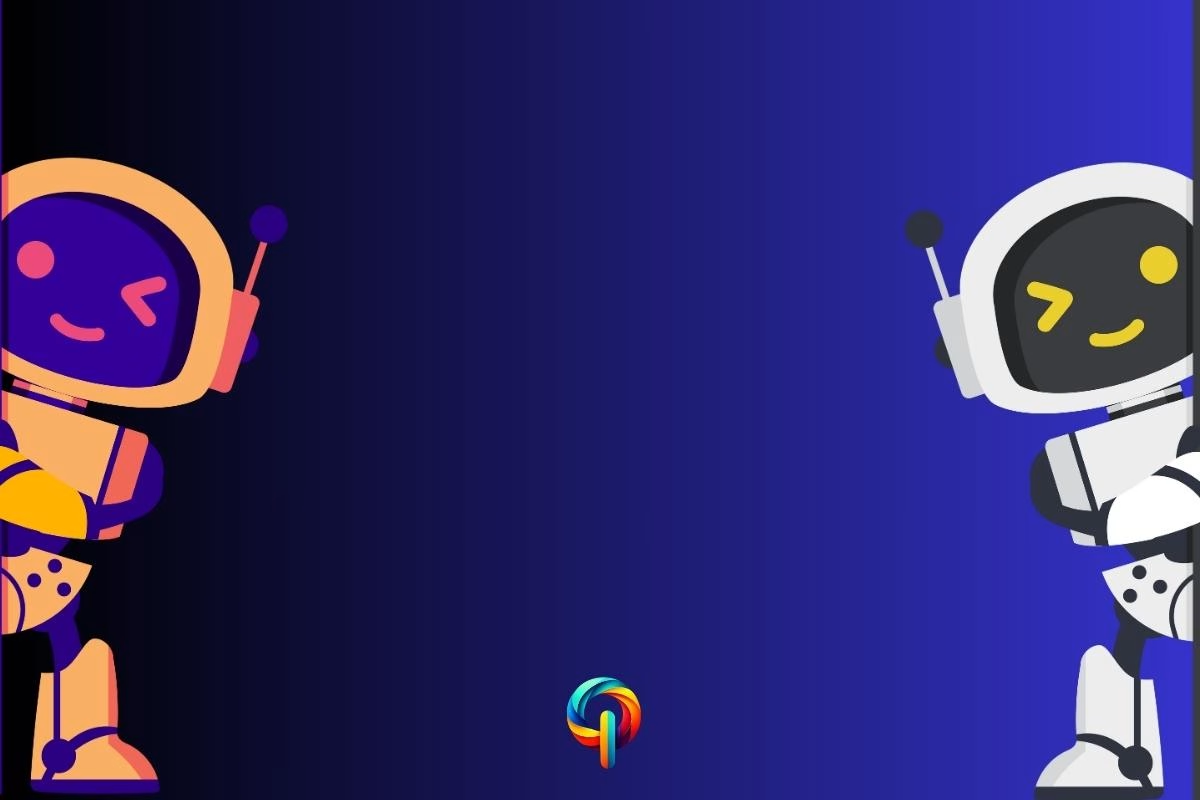
Did you know AI is changing the game in healthcare? From diagnosing diseases earlier with smarter imaging to speeding up drug discoveries using virtual trials, AI is making big moves. Imagine treatments tailored just for you—yep, that’s personalized medicine, and AI is leading the way! Sure, there are challenges like data privacy and bias, but the future looks bright. This chat dives into how AI is building a healthcare system that’s faster, more accurate, and accessible for everyone. Ready to explore?
Let’s get started!
Contents Of The Article
What Are the Key Ways AI Is Shaping the Future of Surgery?
Imagine a world where diseases are caught before they even show up, your treatments are custom-made to match your DNA, and clinical trials happen in virtual labs. Sounds like sci-fi, right? Well, it’s not—it’s the magic of AI stepping into the spotlight!
AI is flipping the script on medicine and biotech, turning what once felt futuristic into today’s reality. From pinpointing diseases with laser accuracy to whipping up new drugs faster than ever, AI is leading a healthcare revolution. Personalized care? Oh yeah, that’s just the beginning. Let’s dive in and see how AI is reshaping the future of healthcare, one groundbreaking innovation at a time.
How AI is Shaping the Future of Medicine and Biotech
AI: Your Future Healthcare Partner:
AI isn’t some far-off sci-fi dream—it’s already here, shaking up the world of medicine and biotech in jaw-dropping ways. Picture this: diseases detected before they even appear, treatments customized to your unique needs, and groundbreaking cures discovered faster than ever. Sounds amazing, right? That’s the power of AI in action.
Why AI is the Game-Changer in Healthcare:
From revolutionizing diagnostics to personalizing care, AI is rewriting the rules of medicine. It’s making healthcare smarter, more efficient, and way more accessible. Whether it’s speeding up drug discovery or helping doctors make better decisions, AI is transforming how we stay healthy and tackle diseases.
Let’s dive deeper into this exciting future!
AI as a Super-Charged Diagnostician: Spotting Problems Sooner
One of the most exciting applications of AI in medicine is its ability to revolutionize diagnostics. Think of AI is Shaping the Future as a super-powered detective, capable of sifting through mountains of medical data—from X-rays and MRIs to patient histories and genetic information—to identify diseases earlier and more accurately than ever before.
The Power of Images:
AI algorithms can analyze medical images with incredible precision, spotting subtle patterns and anomalies that might be easily missed by the human eye. This means earlier detection of serious conditions like cancer, Alzheimer’s, and eye diseases like diabetic retinopathy, giving patients a better chance at successful treatment.
Pathology Gets a Boost:
Analyzing tissue samples under a microscope is a crucial part of diagnosing many diseases. AI-powered systems can assist pathologists by analyzing these samples with remarkable speed and accuracy, helping them make more confident and timely diagnosis.
This AI-driven approach to diagnostics has the potential to dramatically improve patient outcomes by enabling faster interventions and more effective treatment plans.
Making Healthcare Run Smoother: Behind the Scenes AI is Shaping the Future.
Beyond just diagnostics, AI is shaping the future by streamlining healthcare operations and boosting efficiency in hospitals and clinics. AI-powered systems take care of routine administrative tasks, simplify complex patient record management, and optimize appointment scheduling. By handling these time-consuming processes, AI allows doctors, nurses, and other healthcare professionals to focus on what truly matters: providing direct patient care. This transformative application of AI helps healthcare facilities run more smoothly, reduces operational costs, and significantly enhances patient satisfaction.

AI’s Role in Drug Discovery: Finding New Cures Faster
Discovering and developing new drugs is traditionally a long, expensive, and often frustrating process. AI is Shaping the Future of game by accelerating the identification of promising drug candidates and predicting their potential effectiveness.
Decoding Biological Data:
AI algorithms can analyze vast datasets of biological information, including genomic data, molecular structures, and the complex interactions between different molecules, to pinpoint potential drug targets and predict how various compounds might interact with them.
Virtual Drug Trials:
Instead of relying solely on time-consuming and costly laboratory experiments, AI can simulate drug trials virtually, allowing researchers to test thousands of potential drug candidates in a fraction of the time and at a fraction of the cost.
This AI drug discovery revolution is significantly speeding up the drug development pipeline, potentially leading to the faster development of new and more effective treatments for a wide range of diseases, from cancer to rare genetic disorders.
Biotech Innovation Gets an AI Infusion
The biotech industry is experiencing a revolution, with innovations transforming the way we approach biological processes and materials. By integrating advanced algorithms, researchers are developing cutting-edge biomaterials, engineering efficient biological processes, and designing organisms with specific traits. It’s clear that AI is shaping the future of fields like synthetic biology and personalized medicine. These advancements not only drive innovation but also pave the way for sustainable biomanufacturing, showing how deeply AI is shaping the future of biotechnology.
Personalized Medicine: Tailoring Treatments Just for You
One of the most exciting frontiers in modern medicine is the concept of personalized medicine, where treatments are tailored to each individual patient’s unique genetic makeup, lifestyle, and medical history. AI is Shaping the Future and playing a pivotal role in making this vision a reality.
Analyzing Your Unique Data:
AI algorithms can analyze vast amounts of individual patient data, including genetic information, detailed medical history, lifestyle factors, and even environmental exposures, to predict how a patient will respond to different treatment options.
Developing Targeted Therapies:
This AI-driven approach enables the development of highly targeted therapies that are not only more effective but also have fewer side effects, as they are designed to interact specifically with the patient’s unique biology.
This personalized medicine AI approach is transforming how we approach healthcare, moving away from a traditional one-size-fits-all model to a more precise, individualized, and ultimately more effective approach.
Navigating the Challenges of AI in Healthcare
While the potential of AI in medicine and biotech is truly immense, there are also important challenges that must be addressed to ensure its responsible and effective implementation. These include:
Protecting Your Privacy:
Ensuring the privacy and security of sensitive patient data is absolutely paramount. Robust data protection measures and strict adherence to privacy regulations are essential.
Setting Clear Rules:
Clear regulatory frameworks and ethical guidelines are needed for the development, testing, and deployment of AI-based medical devices, diagnostic tools, and treatment protocols.
Avoiding Bias:
It’s crucial to ensure that AI algorithms are fair, unbiased, and do not perpetuate existing health disparities. Careful design, rigorous testing, and ongoing monitoring are essential to prevent bias from creeping into AI systems.
Addressing these challenges proactively is essential to fully realizing the transformative potential of AI in shaping the future of medicine and ensuring that these powerful technologies are used responsibly and ethically.
The Future is Intelligent: AI’s Continued Impact on Healthcare
The integration of AI into medicine and biotech is still in its early stages, but its influence is undeniable across the healthcare landscape. This transformative technology is revolutionizing the industry step by step. As AI continues to evolve, we are witnessing how AI is shaping the future of healthcare—making it more precise, personalized, and accessible. These advancements promise to reshape disease prevention, diagnosis, and treatment methods, ensuring healthier and longer lives for all. The way AI is shaping the future is a testament to its potential to create a more efficient and inclusive healthcare system globally.
“More FAQs of AI is Shaping the Future”
How can AI help doctors diagnose diseases more accurately?
AI acts like a super-powered assistant, analyzing vast amounts of medical data such as X-rays, MRIs, and patient records with incredible speed and accuracy. By detecting subtle patterns and anomalies often overlooked by the human eye, AI is shaping the future of early disease diagnosis, including conditions like cancer and Alzheimer’s. This leads to quicker interventions and significantly improved patient outcomes. Additionally, AI supports pathologists in analyzing tissue samples, further enhancing diagnostic precision.
How is AI speeding up the development of new drugs?
AI accelerates drug discovery by analyzing massive biological and chemical datasets to identify promising drug candidates and predict their effectiveness. It simulates virtual drug trials, reducing the need for extensive lab experiments and significantly speeding up the process. This allows researchers to focus on the most promising leads, potentially leading to faster development of new treatments for various diseases.
What is “personalized medicine,” and how does AI make it possible?
Personalized medicine tailors treatments to each patient’s unique characteristics, like genetics and lifestyle. AI makes this possible by analyzing vast amounts of individual patient data to predict treatment responses. This allows doctors to choose the most effective treatment plan, minimizing side effects and maximizing success. It’s like having a custom-designed treatment based on your unique biology.
Are there any downsides or concerns about using AI in healthcare?
Yes, there are important considerations. While AI is shaping the future of healthcare, data privacy remains a top priority as these systems rely on sensitive patient information. Ensuring robust data security and the responsible use of AI is absolutely essential. Another critical concern is the potential for bias in AI algorithms, which must be mitigated through meticulous design and rigorous testing. Lastly, it’s important to remember that AI is a tool meant to assist rather than replace healthcare professionals—human interaction and clinical judgment will always play a vital role in patient care.
What does the future of AI in medicine look like?
The future is promising, with even more sophisticated AI-powered diagnostic tools, personalized treatments, and accelerated drug discovery. AI could enhance preventative care through wearable devices and early problem detection. Telemedicine and AI-powered diagnostics could also improve healthcare access in remote areas. While challenges remain, AI has the potential to revolutionize healthcare and improve lives globally.
Wrapping It Up
Yes,The future of medicine and biotechnology is buzzing with potential, and AI is at the heart of this transformation.
Sure, we’re not likely to see fully robotic doctors strolling into hospitals anytime soon, but the ways AI is reshaping healthcare are nothing short of revolutionary. Imagine AI-powered systems designing groundbreaking new drugs tailored to individual needs or advanced algorithms detecting diseases long before symptoms appear. From personalized treatments to improved diagnostics,
AI is quickly becoming an indispensable ally, helping us lead longer, healthier, and more fulfilling lives because AI is Shaping the Future of Medicine and Biotech.





